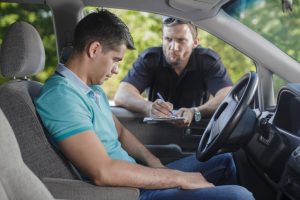Nothing is more exciting than a flashing blue light in your rearview mirror to turn an ordinary drive into an excruciating experience.
Besides monetary penalties associated with speeding tickets, they can also add demerit points and raise one’s insurance premiums.

But you need not accept the citation of a speeding ticket without trying to explore the options available.
There are ways of getting around a speeding ticket, and knowing about these can empower you to seek a better result.
This article is meant to discuss the many ways one may challenge a speeding ticket: the legal and procedural avenues involved in this process.
The very first step in contesting a speeding ticket is knowing your citation inside and out.
Look very carefully at the entire citation, which must include dates, times, locations, and the speed at which you were recorded.
Any such errors can serve as grounds for a speed citation challenge.
Be careful about the notes made by the officer and what kind of speed detection device was used.
Each of Radar, Laser, and pacing has its standard operating procedures, which, when deviated, can be challenged.
Another way to go about the contest is to challenge the accuracy of the speed-detecting device.
Radar and laser devices need to be regularly calibrated and maintained.
If you can prove that the device wasn’t calibrated or maintained properly, then you might have grounds to contest that ticket.
Pacing, for example, the officer following your vehicle to determine the speed, has human error related to it and may be contested based on the officer’s experience and conditions of the road.
You can also contest speeding tickets on other procedural grounds.
The officer shall lay out specific procedures during a traffic stop, which include identification of the officer, explanation as to why you are being pulled over, and giving a copy of the citation to you.
You can contest any discrepancies in those parameters in court.
Witness Testimony can also really help you in contesting that speeding ticket.
If you have a couple of witnesses on your side of things, their testimony will be great in favor of your situation in court.
Especially if what the officer says doesn’t match up with much evidence.
The weather conditions may also affect your case’s argument against a speeding ticket.
Visibility might be impaired during heavy rain, snow, or fog, which might lead to incorrect readings from speed-detecting devices.
If it can be shown that the weather conditions had a bearing on visibility, a possible way to challenge the ticket might present itself.
Challenging the signs posted is also a good tactic.
If the speed limit signs were blocked, missing, or wrongly placed, that can be grounds for defense.
This involves taking copious notes and, ideally, photographs.
There is no doubt that every jurisdiction has its own law on appealing a speeding ticket.
In most jurisdictions, though, you will most probably be allowed to plead not guilty and ask for a trial to present your evidence and arguments before the judge or justice of the peace.
This preparation includes documentation, for example, citations, police reports, and any statements made by witnesses.
You also photograph or shoot video of the place where you were ticketed, for example, if the case has to do with improper signage or conditions of the roadway.
Know the very particular laws and regulations in your jurisdiction.
For example, if you are looking at how to fight a speeding ticket in Ontario, you must understand how the Highway Traffic Act applies in that province and what the requirements for fighting tickets there are: all deadlines for appeals and what type of evidence is admissible in court.
The hiring of a paralegal or lawyer specializing in traffic tickets will make great strides toward victory.
They have the knowledge and experience to go through the complicated laws of the system, advocating for you.
They may help when you want to develop evidence, prepare for trial, and present a good case in court.
It requires the legal process, then, to challenge a speeding ticket and a lot of preparation.
So if you read the citation, collect evidence, and learn your rights, you would have a chance in that regard.
While there’s no guarantee that you will prevail there, challenging a speeding ticket might become a worthwhile pursuit in the event of significant fines.


Leave a Reply